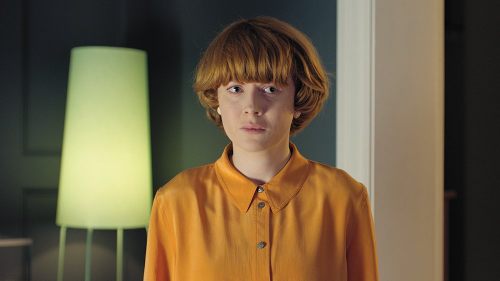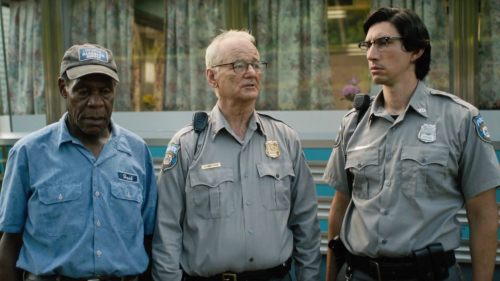How Soon Is Too Soon To Dramatize Terror?
Christchurch, New Zealand has had a rough decade. Bookended on one end by a series of earthquakes, beginning in 2010, and on the other this year by the March 15 mass shootings at two city mosques, the smallish city’s international profile is currently one of tragedy. And as happened after the earthquakes, a producer has decided the time has apparently come to dramatise the shootings into a piece of screen entertainment for you and me.
Reported in Variety this week, the film in question is entitled Hello Brother, and is to be directed by Egyptian filmmaker Moez Masoud, should it get made. Masoud and his producing partners are currently in Cannes attempting to make a financing deal for the project. It has been two months since the shootings.
According to Variety, the film plays out roughly as follows:
The film will follow a family facing death and destruction in Afghanistan who escape with their lives. Their story meshes with that of the recent attacks by a 28-year-old white supremacist on the Al Noor Mosque and Linwood Islamic center. The shootings claimed the lives of 51 worshipers and were partly live-streamed on social media. The title of the project is based upon the words of one the victims of the gunman.
Masoud - one of twelve credited producers on 2016 Cannes Un Certain Regard opener Clash - is a scholar and public speaker of some renown, and would make his directorial debut with this film. He describes Hello Brother as “just one step in the healing process, so that we might all better understand each other, and the root causes of hatred, racism, supremacy and terrorism.” I have zero doubt that he believes this when he says it. But the timing of his announcement raises serious questions about the project’s approach to its subject matter - and specifically, to the people involved in it.
Let’s put aside for a moment that calling this film Hello Brother is roughly the equivalent of making a movie about 9/11 entitled Let’s Roll. Considering the time period between the shooting and the Cannes sales pitch, there would seem to be two possible ways this script was written. Maybe it was rushed out from scratch in under 60 days, as Masoud announced his intentions to tell this story nine days after the shooting. Worse, maybe the writers had a script about a refugee family mostly ready, then tacked on the shooting as an ending, as in the ill-advised Robert Pattinson romance Remember Me. Neither approach is exactly ideal.
Co-writer J. Rick Castaneda (whose most prominent credit to date is as co-director of seven episodes of Ninjago: Masters Of Spinjitsu) has been visiting Christchurch recently - specifically, since Monday, concurrent with his colleagues attempting to sell the project at Cannes. He’s met with some families of the deceased, and with the Imams of both mosques involved in the shootings, and told the New Zealand Herald he’s here for two weeks to meet as many people as possible. But perhaps unsurprisingly, Castaneda’s visit and the project itself have seen considerable pushback. Imam Gamal Fouda of the Al Noor Mosque refused to speak to the Herald about it, while spokesperson Anthony Green had the following to say about the project:
Al Noor Masjid spokesman Anthony Green found the movie talk "a little bit staggering".
He also briefly met Castaneda yesterday and found him "sketchy" on details.
"No proper discussion has taken place. Just how it's got to this point is quite surprising, to be honest," Green said.
"I'm not interested in movies. The last thing I want is a Hollywood treatment or dramatisation.
"The critical thing for us is the protection of the dignity of people trying to get their lives back. So to Hollywoodise it … I'm not interested. It would go against everything we're trying to do."
Green was also concerned that the film-makers appear to have "an agenda already decided".
That’s pretty unambiguous, and frankly, rightly so. Seeking script input from survivors this soon after their family members were murdered, transparently seeking forgiveness after the fact, doesn’t really achieve the presumed aim of making one’s simultaneous sales efforts seem less callous. In fairness, Masoud and company don’t represent “Hollywood” exactly, but irrespective of their origins and intentions, there's an undeniable financial element to any film deal, and at this point in time at least, this isn't their story to tell.
This story belongs to the international Muslim community, certainly, as it’s a story that has tragically played out repeatedly the world over. But it also belongs to Christchurch, and it especially belongs to the Christchurch Muslim community, who - and I cannot stress this enough - are still mourning loved ones who died just two months ago. I’m not part of the Muslim community, but I am from Christchurch - I’m sitting a couple hundred metres from the Al Noor Mosque as I write this - and I can certainly speak to how it feels when outsiders tell stories that are unique to a smallish community. Christchurch folks don’t even like Aucklanders dramatising their tragedies, as in the post-earthquake series Hope & Wire. New Zealand and Christchurch are small, and there’s a lot of cultural context that will almost certainly be missed by a team giving such an apparently cursory glance toward the actual places and people affected.
Now, it’s possible that Hello Brother will be an intelligent, sensitive dramatisation of one family’s story, without any sensationalisation of the actual shooting. There are many ways to tell stories around such tragedies, some of them positive and constructive. None of those involve confronting survivors with the prospect of seeing their darkest day depicted on screen mere weeks from that day. Masoud's "healing process" motivation is surely virtuous, but the project's very existence neatly ignores the people who are most directly in need of healing. No amount of sensitivity will change that.
Given what we know - that the script was written in a maximum of two months, and that only one of the writers has visited Christchurch, after the producers arrived at Cannes to start doing deals and publicity - it’s hard not to characterise the project as ghoulish exploitation. It’s difficult also to see the Cannes announcement as anything other than an attempt to get out in front of anyone else who might announce such a project. That’s understandable from a sales perspective, perhaps, but it doesn’t do anything to improve the optics or the ethics of such a move.
Hello Brother might well never get off the ground. Oftentimes, announcements such as these are made solely in order to make a big splash and gain some presence in a crowded festival and market. If it does go before lenses, will it be shot in Christchurch? How will the city and its inhabitants - and especially the survivors - respond to that? Will potential Kiwi crewmembers, as suggested by Deathgasm director Jason Lei Howden, boycott the production? Will the filmmakers approach the New Zealand Film Commission for assistance, and if so, what will their response be?
There’s no reason why events such as these shouldn’t be dramatised - at some point. Telling stories is, after all, an important part of how we cope with tragedies. But to jump into that process so soon after the tragedy in question is a terrible idea. Insufficient time has passed to fully grasp the impact of the shooting on Christchurch, the New Zealand Muslim community, and the world. Flowers and signs of mourning and support still festoon the affected mosques. And most importantly, the community doesn’t want its story being exploited - especially not by people, however well-intentioned, storming unwelcomed into a private narrative.
Even Paul Greengrass - who’s made a career out of dramatising terrorism - has generally left a half-decade or more between his subject matter and his films. That’s part of why he's so successful; there’s been time to digest, to ruminate, and to let the bodies cool. No movie is worth inflicting further trauma on its subjects. No healing process can begin by forcibly dragging the emotionally and physically injured straight back through the experiences that injured them, for somebody else's benefit. And if they have any sense of decorum, no film financiers will greenlight a project this rushed and this ill-advised.



